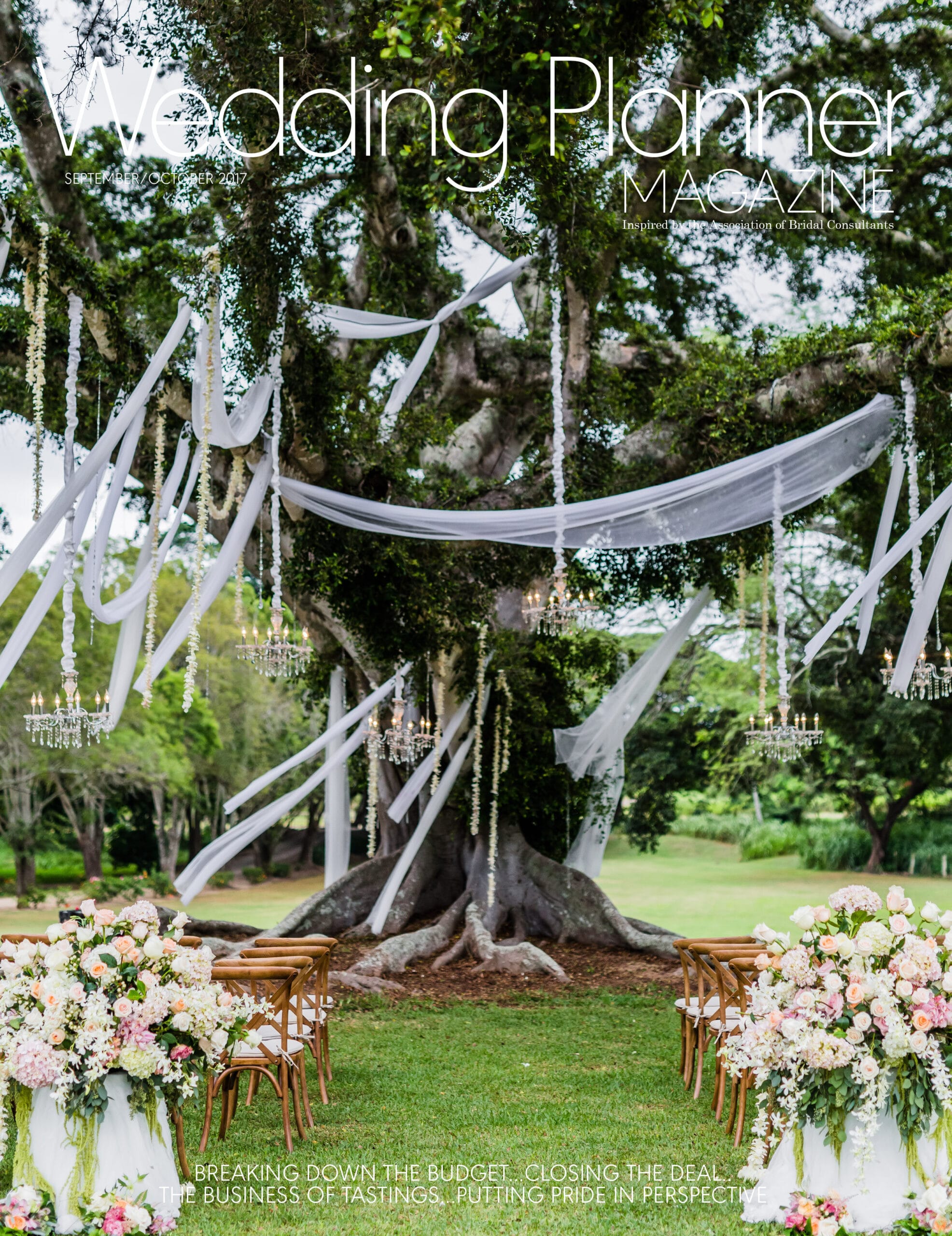This article ran originally in the Sept/Oct 2017 issue of Wedding Planner Magazine. The original article “Putting Pride in Perspective: Seeking Inside-The-Industry Answers to Marriage Equality Issues” has been reprinted here by permission from the publisher.
Seeking Inside-the-Industry Answers to Marriage Equality Issues
By Kathryn Hamm
These days, the emotional range of the LGBTQ community can broadly be described as reflective, agitated, and empowered. On the heels of the advent of marriage equality two years ago, with several lower courts ruling against wedding pros who refused to serve same-sex couples, and with higher approval ratings for and comfort with same-sex marriage, there is certainly much about which the LGBTQ community can feel empowered and content.
But a deeper unrest exists for many beneath the champagne toasts and sparkler-lit receptions.
Seeing more of the rainbow
Since the dramatic night at the Stonewall Inn in 1969, when the modern understanding of gay activism and “gay pride” month was born, the community has assimilated into mainstream culture, with weddings and the acceptance of the wedding and hospitality industries playing a significant role.
Largely gone are the gay bookstores and bars where we felt safe to congregate. Gone are the pride marches and parades in our “gayborhoods” that were almost exclusively attended by LGBTQ folk with a straight ally here or there. Gone are the one-dimensional understandings of us as the gay uncle, the lesbian PE teacher, the mentally disturbed loner, the flamboyant drag queen.
You see more of our rainbow in your world now. We are the couple down the street. The parents of the child with whom your child shares a homeroom. Your college roommate’s best man at her wedding. Your brother. Your sister. Your parent. Your child.
We’ve come a long way since Stonewall. Those of us who came of age in the ‘70s, ‘80s, and ‘90s feel as empowered by the acceptance of our families and our much-anticipated legal right to wed as we do reflective of the community identity and subculture we’ve lost.
A deeper unrest
Even so, the LGBTQ community and the wedding industry continue to circle around some agitating questions; many of which were debated and discussed in the past 10 years, but which were left unresolved in the journey toward marriage equality and the widely celebrated Supreme Court decision codifying that #LoveIsLove.
In 2014, prior to the federal recognition of marriage equality, Wedding Planner Magazine published a survey of its readership on which I collaborated. The survey revealed that a majority (73%) of wedding pros plan to provide or already provide same-sex wedding services. The follow up question we asked was: if you don’t, why not? It might not surprise you to know that the vast majority of the remaining 27 percent who did not offer same-sex wedding services (91%) reported opting out because of their religious beliefs.
According to a 2015 WeddingWire survey of wedding professionals, the divide in this segment of industry opinion still rings true: the vast majority of wedding professionals have grown to support same-sex weddings (90%)—and marriage equality for that matter (69%)—and, of the 9 percent who remain against servicing LGBTQ weddings, 72 percented report doing so largely because of their religious beliefs (59% also said they believe marriage is between a man and a woman).
In my experience, the majority of wedding pros who don’t support marriage equality or don’t want to work with same-sex couples have treated me with respect and kindness. Some are curious and open to learning more, even though they are wary of attracting attention to their business and beliefs. Some are defensive and share their opinions aggressively, hurtfully, and without refinement. But, the majority of folks I encounter are wrestling with personal experiences, personal challenges, and religious customs defined by their communities and religious leaders. In some ways, the anxiety they express matches closely the anxiety expressed by same-sex couples who fear discrimination.
What’s the answer?
So how do we solve this dilemma? How do we help businesses that serve the public understand marriage as a civil right and endeavor, without judgment, to open their doors to work with any couple who enters? How also do those of us who feel strongly about marriage equality and non-discriminatory business practices provide space and respect, without judgment, for those who would take a stand, knowing the risks, and refuse service even though it is explicitly against the law to do so in most states?
The way through these tight spots and uncomfortable conversations is to lead with love, listen with love, and serve with love. But, in our current entrenched, tribal-opinion battles, this certainly seems harder than ever. And more necessary than ever.
In the United States, it isn’t over yet
One thing is for certain: the debate about “religious liberty” vs civil rights is far from over. This past June, at its annual meeting, the Southern Baptist Convention, founded under the banner of religious liberty in the 19th century in defense of Christian slaveholders’ beliefs, voted, after some controversy and parliamentary wrangling, to denounce racism and white supremacy. It seems hard to believe that doing so in this day and age would have been fraught with hand wringing. But it was. I’m just glad the Church leadership made its stance manifest. It’s an important step to distance itself from one of the troubling reasons for its founding.
With a conservative-leaning Congress and White House determining legislation through 2018 at a minimum, and with a divided bench on the Supreme Court (which is likely to see turnover in the next year to two), we can expect more headlines of wedding professionals who wish to refuse service based on their religious beliefs—headlines that will test those limits in court. The most well-known case is Colorado’s Masterpiece Cakeshop vs. the Colorado Civil Rights Commission, which will dominate headlines this fall when its case (and perhaps the case of Washington State’s Arlene’s Flowers joining it) is heard in the Supreme Court of the United States.
No easy answers
The understanding of this reality leaves many in the LGBTQ community understandably on edge. After all, it was not long ago that we had very few protections for ourselves, our jobs and our families. We know well what it feels like to be marginalized.
There are no easy answers when contradictory beliefs are on a collision course. It strikes me, however, that recognizing the rule of law around discriminatory practices in the marketplace while continuing to listen to each other is key. Fighting for a space of mutual respect and understanding includes making sure that every couple can expect to be served, and every wedding pro who has a religious belief that opposes marriage equality has the freedom to hold that view while still operating his or her business with a comfortable autonomy within the boundaries of the law.
After all, if we can’t find a path to our own answer as an industry, the politicians and courts surely will.

